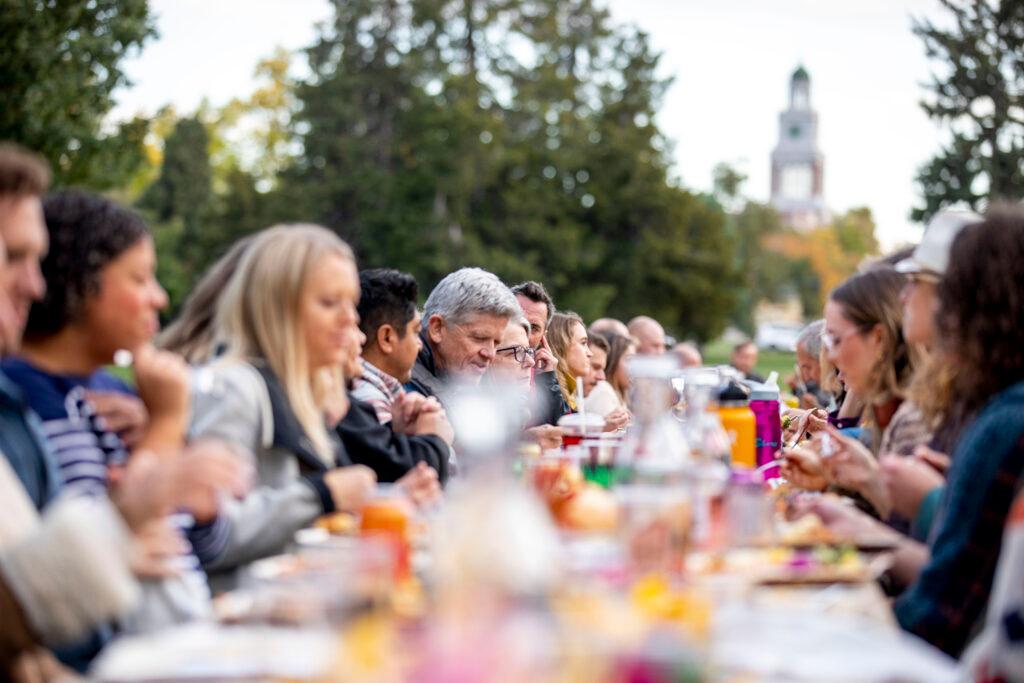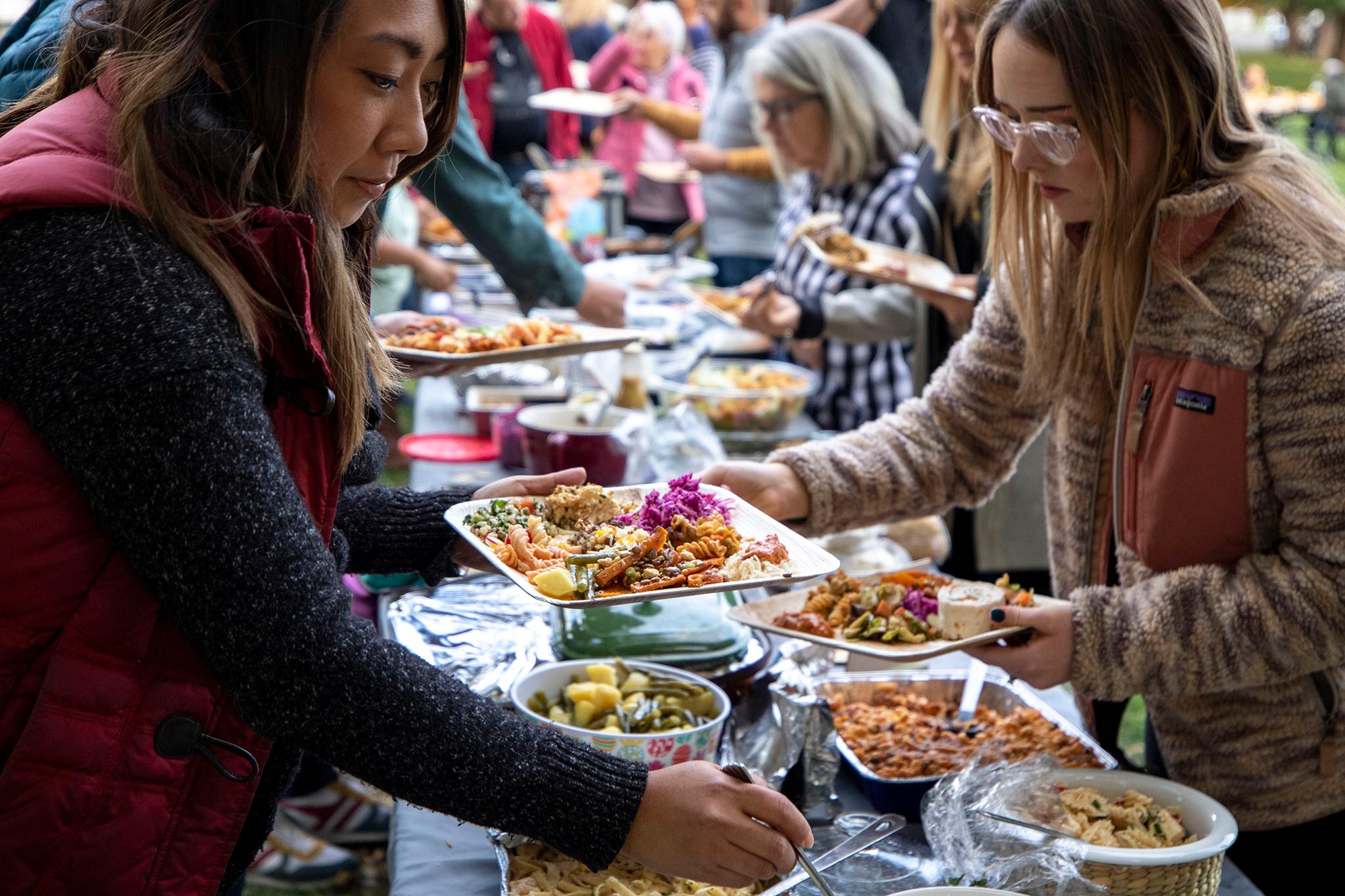
The casseroles were filled with lentil, cauliflower, and squash. The salads had broccoli, red onions, quinoa, and veggies; and there were plates of tamales, chicken in butter sauce, and desserts like brownies and shortcakes.
Eighty people met in Denver’s City Park on a recent fall afternoon for this potluck meal as part of the Longer Tables movement, launched by Denverite Tim Jones, 44, its executive director.
It’s his effort to bring people out of isolation through the great equalizer of food and conversation, and it's a smaller version of a mile-long pot-luck he plans to create next year for thousands of Coloradans.
“For centuries, the shared meal has been a place of connection and a place of solidarity and a place of peace making,” said Jones, a former non-denominational Christian pastor who also now runs Truce Media, a production company in Denver.
These are different from typical potlucks because there are a few key rules: guests separate from the people they arrived with and sit with people they didn’t know. They also don’t talk about their jobs.
“Oftentimes in our culture, our jobs identify us and define us somewhere along the socioeconomic ladder,” said Jones. “We take pride in our positions or we have shame about our jobs. And so we just want to take that literally off the table and say, ‘We want to go deeper than that, and we want to connect on more of a heart and soul level.’”
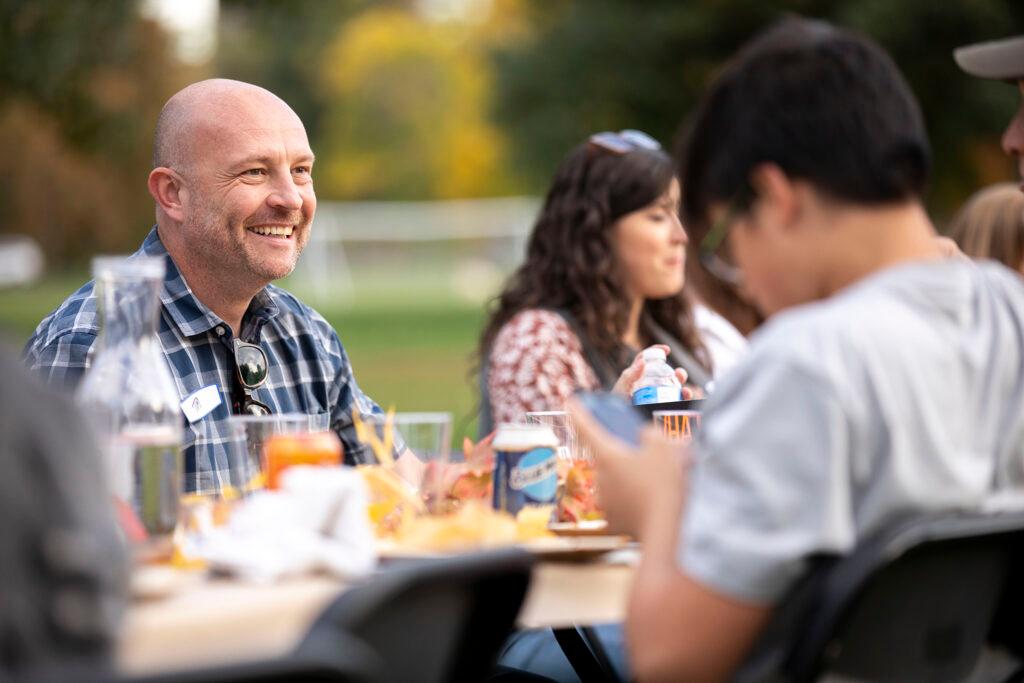
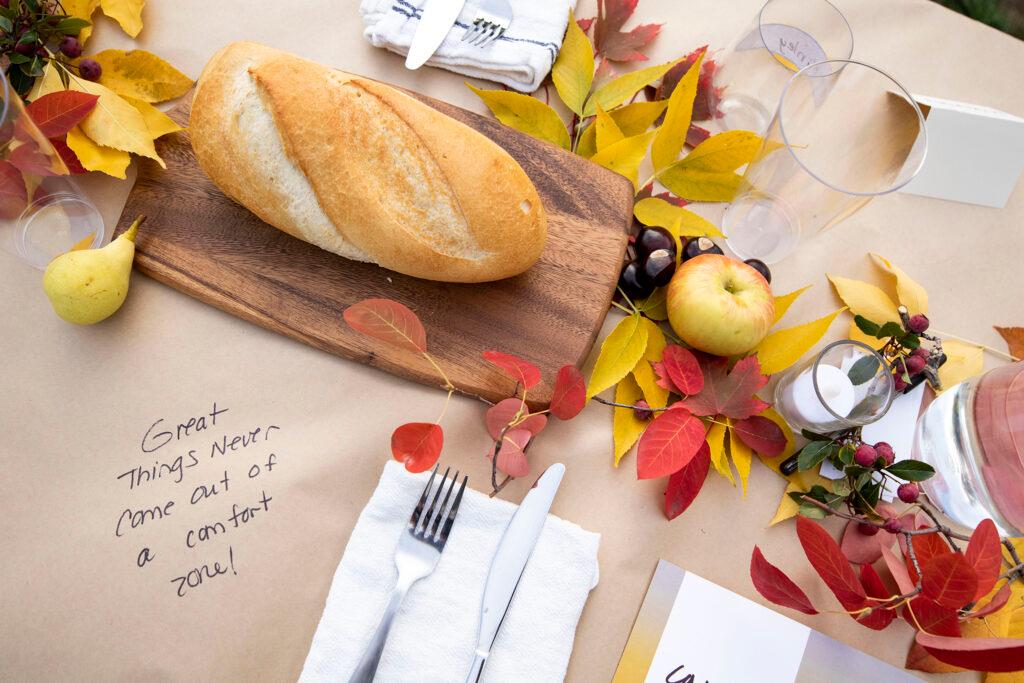
He has created at least 40 such events in the past eight years, all of them around food, as a way to build community and defeat loneliness. It is something people have apparently needed, even before the pandemic, according to one study. The global health insurer Cigna did an online survey of 20,000 people in 2018 to examine behaviors driving loneliness. It found that half of Denver residents “sometimes” or “always” feel no one really knows them well, and more than 40 percent said they “sometimes” or “always” feel left out and alone. The statewide findings aligned with national survey results.
At the Saturday afternoon potluck, Jones and other organizers gave guests a talking prompt to steer them away from job talk: “What fulfills you?” Over laughter, with voices muffled by partially-full mouths, people gave a range of answers: one got fulfillment through family; another through her dog; another by seeing people use their talents. Another said it was enjoying good food and drink with others; yet another said being kind. One guest tossed out another talking prompt, asking: “What stopped you in your tracks this week?” Conversations with new connections lasted over three hours, until the sun went down.
“A table is the great equalizer,” Jones said after the event. “No matter your skin color or where you grew up, or what language you speak, you eat or you die. And so that is a profound place that equalizes us, that recognizes all of our humanity, and really provides a starting point to see one another, to begin to hear one another, to listen to one another.”
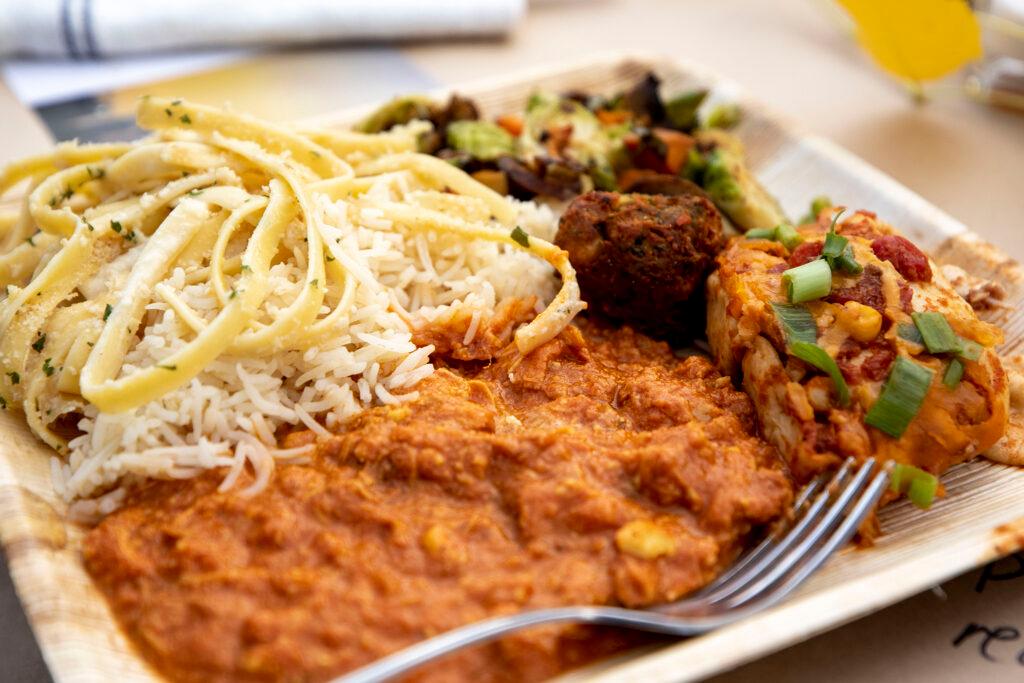
It is an idea that has been done elsewhere. One table stretched across the Mexican and U.S. border in September 2017, and a three-mile-long table celebrating the 11-mile Vasco de Gama Bridge in Lisbon, Portugal made it into the Guinness Book of World Records.
Outcomes of tables Jones has organized have ranged from guests making new friends and getting freelance gigs to finding unexpected commonalities.
“We had a table at City Park in early August,” Jones said, “and three women who had never met one another before, all of Southeast Asian descent, all who were orphaned and all adopted by families in the United States, met one another at the table.”
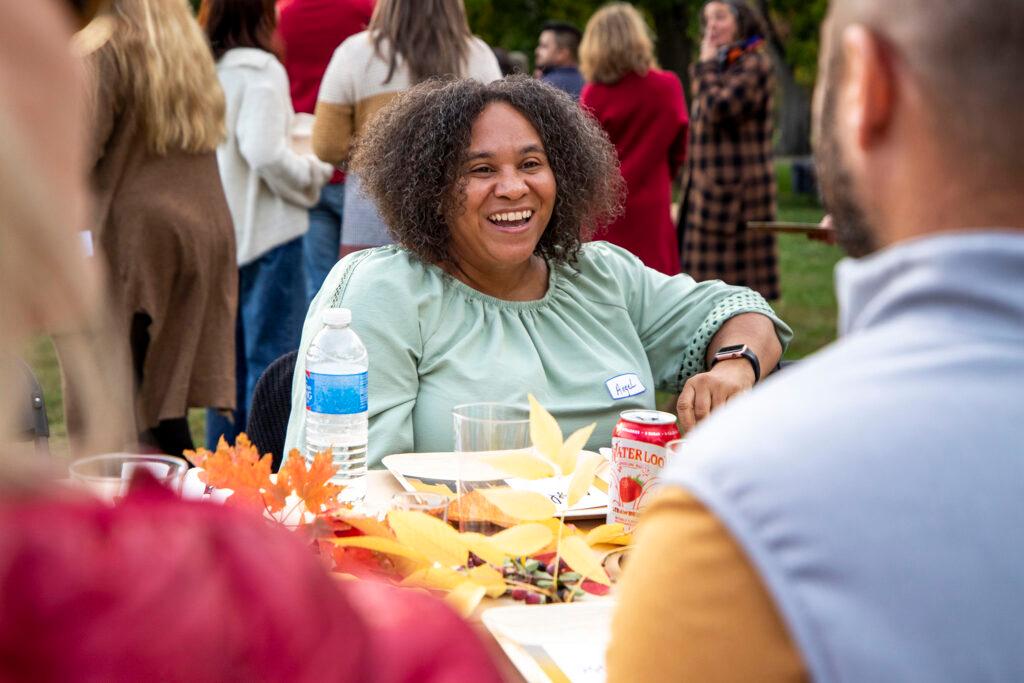
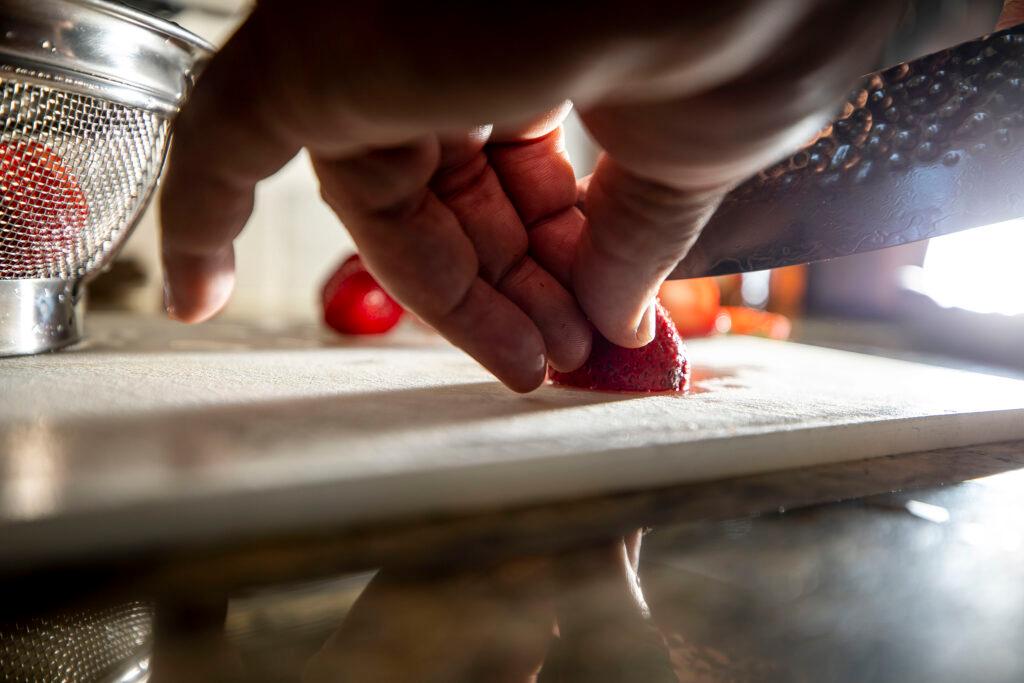
For Angel Jones-Williams, 45, and her husband, Roland Williams, 47, of Centennial, the tables are a place to connect with people for both conversation and professional connections.
The day before the City Park meal, they were preparing the fruit shortcakes they’d bring, starting with baking dough and chopping fresh strawberries, blueberries and peaches. Roland made the chantilly topping, while Angel mixed the lemon juice with the blueberries and bourbon with the peaches to make sauces.
Asked if he’d be going, Roland said: “Yeah, I'm definitely gonna be there — I don't have much of a choice in the matter ...” Then he glanced over at his wife, who he’s been with since high school, and they both laughed.
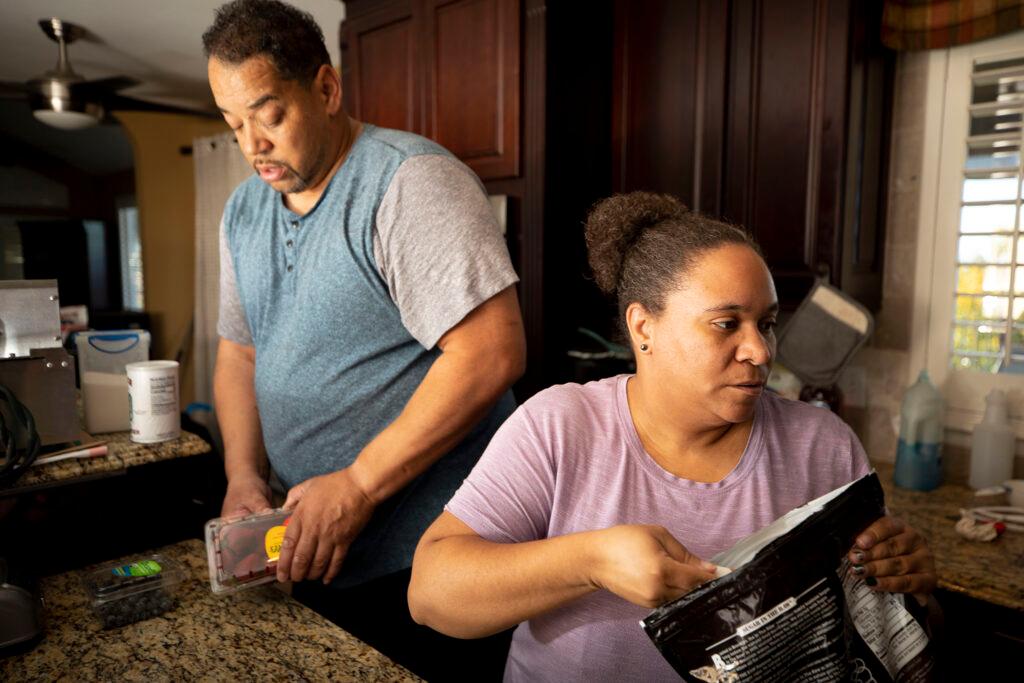
While using an electric mixer to blend whipped cream, cream cheese and raw sugar for the topping, the self-described introvert said he didn’t love getting out of his comfort zone to talk to new people, but conversations had bubbled up that led to a few catering orders, one he had fulfilled that day.
“I tend to enjoy [the tables] because I make myself associate and talk to people. . . I enjoy them because you meet interesting people and I love that,” he said.
The naturally more talkative Jones-Williams, a screenwriter and producer, said attending tables had led to meeting people in her field, and it’s allowed her to grow relationships she’d formed at previous events. One time, she met the head of a professional women’s group.

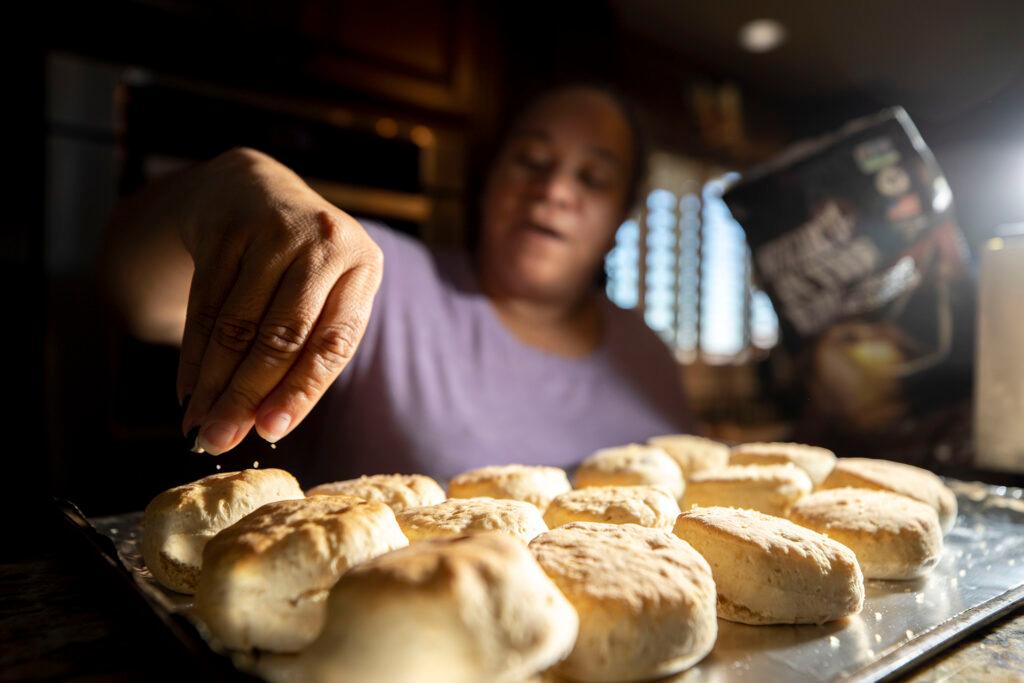
“We still keep in contact. She always introduced me to other women,” she said, such as graphic designers and authors — creatives who might need her screenwriting skills for project collaborations.
Another goal of the long table experience is to get people to create their own. That’s how Jones got started: he was invited to a long table for about 70 guests held by an acquaintance almost a decade ago. It was at sunset with candles, and his name was written on a place card which made him feel valued. He met new friends and a mentor he’s still connected with now. After that, he decided to offer the table experience to other people.
“Something clicked in me and I just knew intuitively like, this is not only what I need. I think this is what other people need,” Jones said.
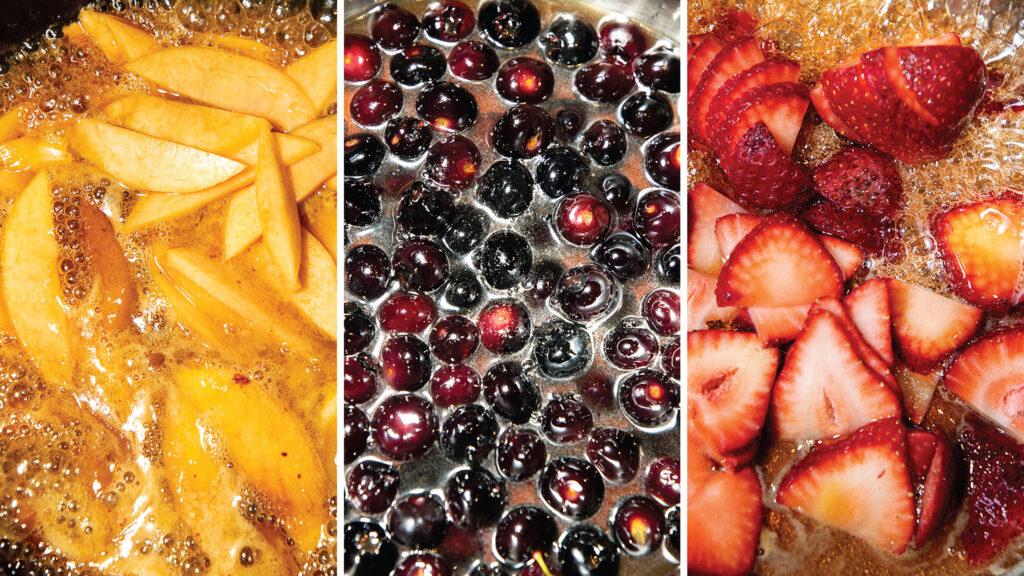
He loans out as many as 14 tables, each eight-feet long, and as many as 100 place settings, including tablecloths and candles, to anyone wanting to do their own long table event, even if for just a handful of diners.
Kris High gave it a try earlier this year, creating a long table around a workplace get-together. She and her family had moved to Denver three years ago from Miami for a better quality of life, and in December 2020, she went to a long table that Jones had coordinated at Lookout Mountain in Golden.
She was invited by one of Jones’ invitees, who in turn had invited a group of guests — including High and her husband. Attending was a no-brainer — they had already agreed to say “yes” to every invitation they could accept, to build community. At first, things felt awkward, but the ice was broken when guests realized they’d be spending the meal seated with people they didn’t know.
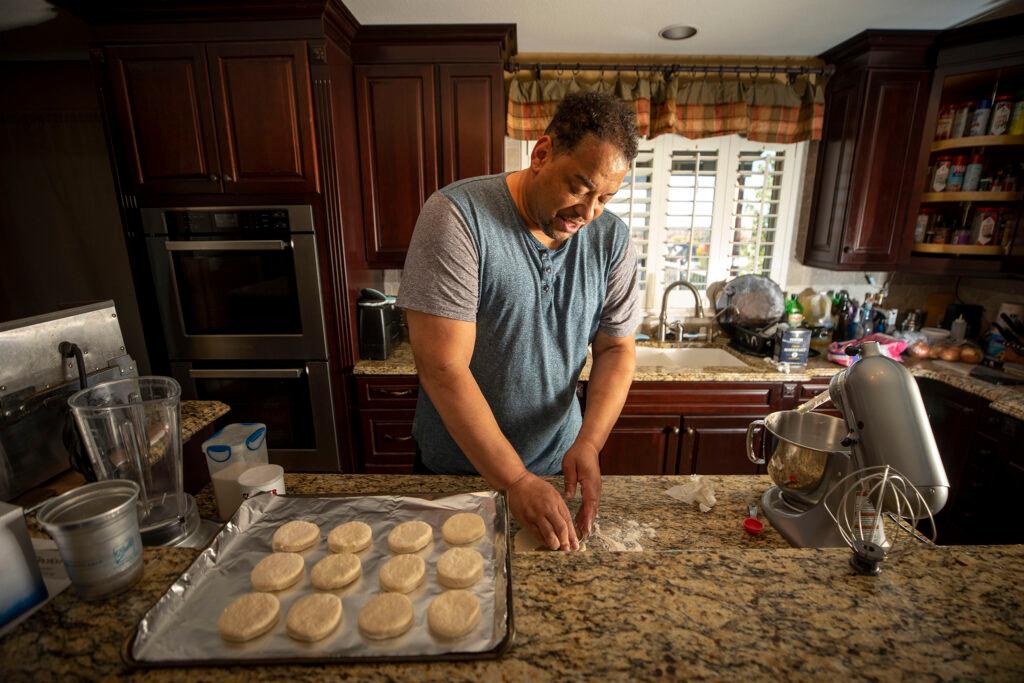
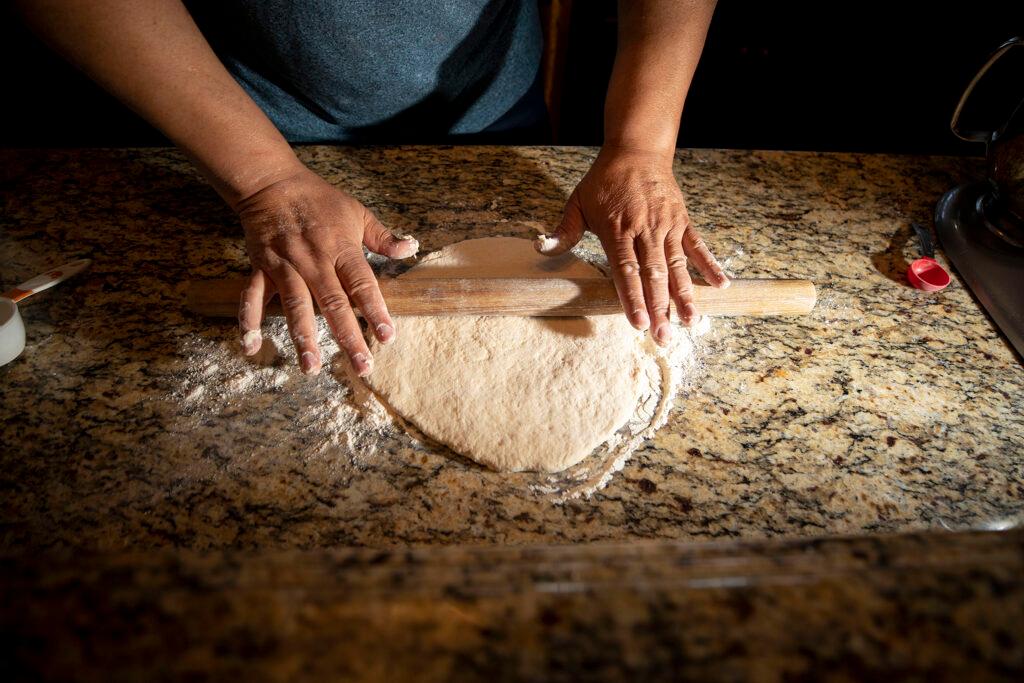
“Everyone was immediately engaging around ‘What was the journey? Who was the person who invited you to this event?’, said High, who has a leadership role at a Westminster-based start-up company that creates virtual reality healthcare apps. “It was so easy. It was so easy to mingle in the crowd.”
In January 2022, she decided to borrow the long table set-up to host a dinner with about two dozen co-workers who’d been working virtually and had not met in person. Her team decorated the office and set tables with tablecloths, candles and wine glasses from the kit. Everyone brought food and ate together. Afterward, they washed the dishes as a group and re-packed the kit.
“We all had to set the table together, and then we went around the table and everyone talked about one thing we were grateful for. It brought this group of people who had never met closer together,” said High. “There’s intimacy in creating your own table.”
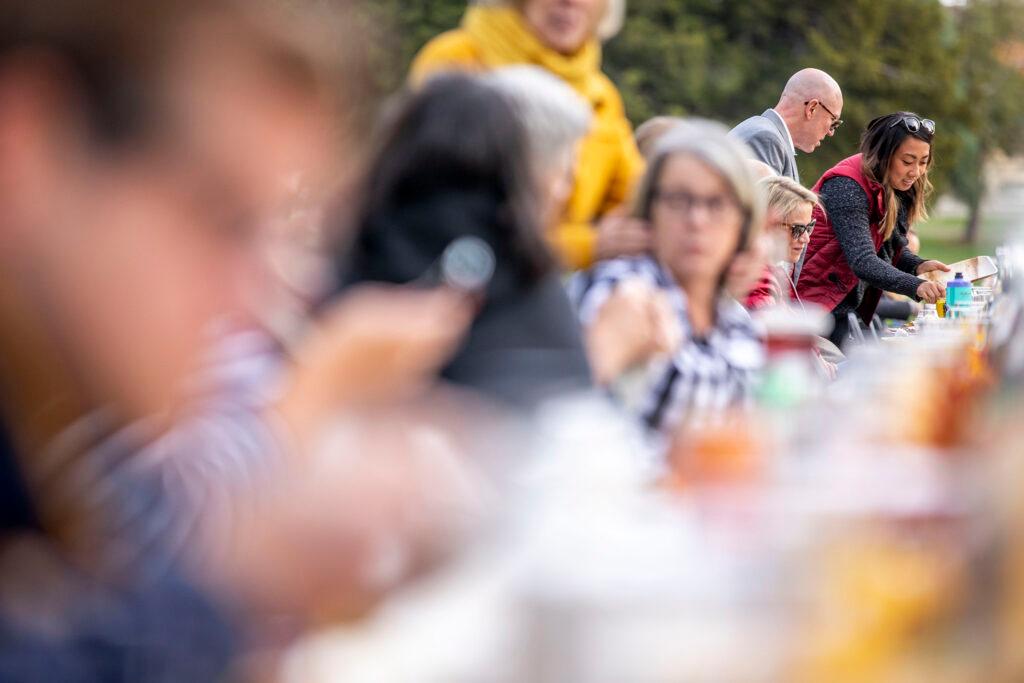
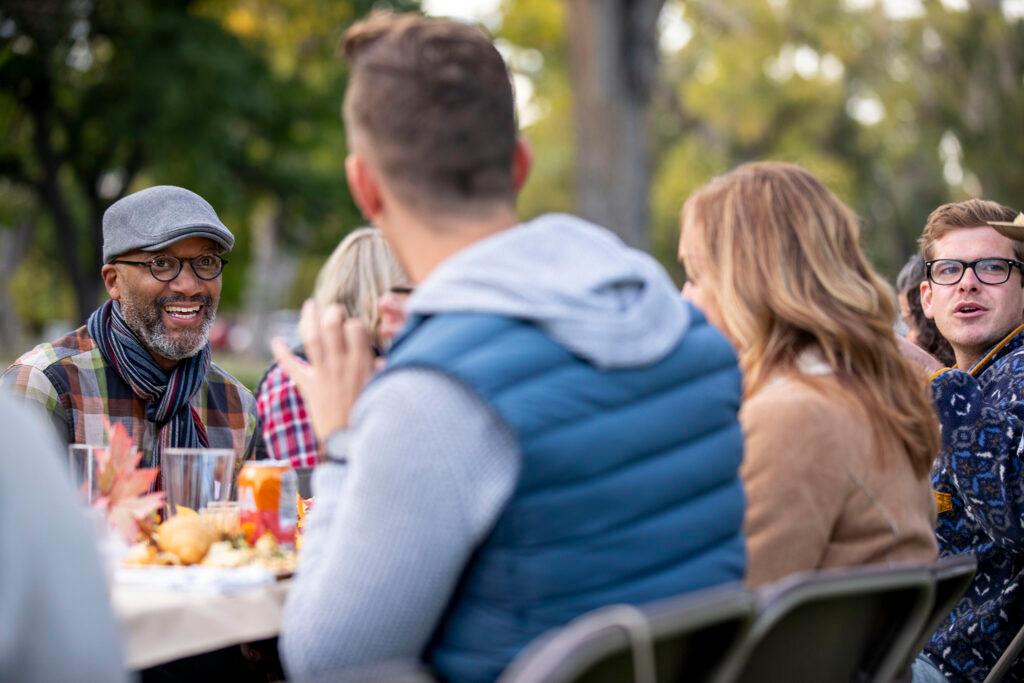
Up next for Tim Jones is something not too intimate: he plans to host a mile-long table in City Park in November 2023 for more than five thousand people. He is in the process of applying for a permit with the Denver Parks and Recreation Department. He envisions people sitting on two sides of many tables, all lined up 5,280 feet long, equal to one mile. With two feet of space for each person on each side, 5,280 people — 5,200 more than were at the most recent event — could fit.
The city begins reviewing applications this month, so Jones is awaiting word as to whether he can pull many more people together and out of isolation, an event the self-described introvert Roland Williams said he’s looking forward to, calling it “The Big One.”
“Nothing is gonna change this overnight,” Jones said about loneliness the some people face. “It’s the baby steps,” made when people gather at a long table, “that is slowly going to rehumanize us, reconnect us – and the table provides that place.”
